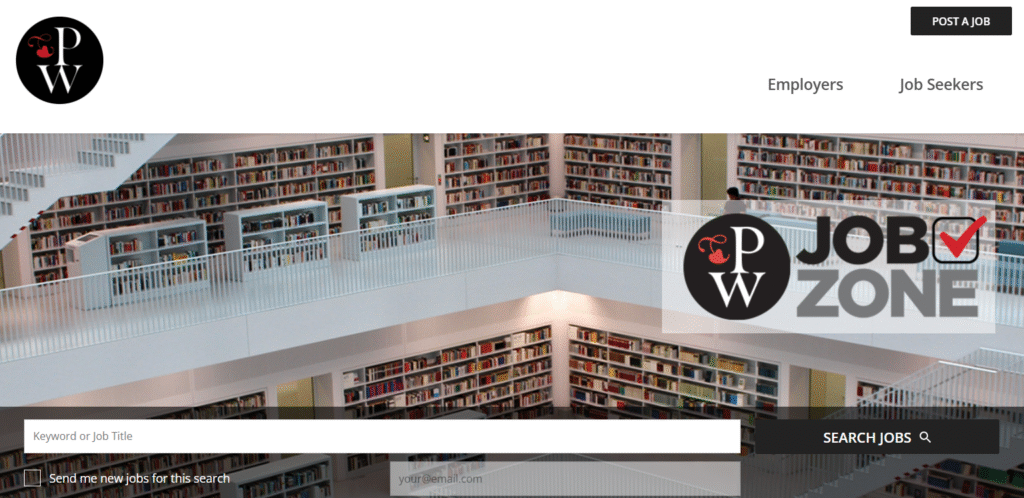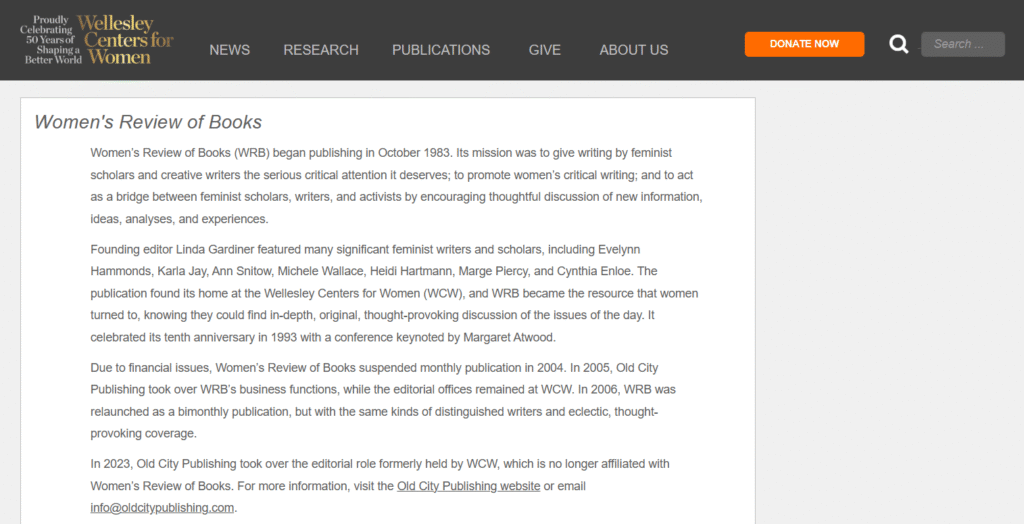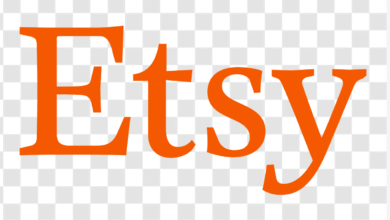Get Paid To Read Books: 15 Websites That Actually Pay!

Picture this: You’re curled up with your favorite book, completely absorbed in another world, when someone walks up and hands you cash for doing exactly what you love. Sounds too good to be true? Well, buckle up, because I’m about to blow your mind with something that’s been hiding in plain sight.
Getting paid to read books is absolutely real, and thousands of people are already cashing in on this dream gig.
As someone who’s been in the personal finance space for years, I’ve seen my fair share of “get rich quick” schemes that make you roll your eyes. But this? This is different. This is legitimate, and frankly, it’s about time someone spilled the tea on how bookworms can turn their passion into profit.
Whether you’re drowning in student loans, trying to build an emergency fund, or just want some extra cash for your next book haul (because let’s be honest, book addiction is real), these opportunities can genuinely supplement your income. I’m talking anywhere from $5 to $50 per review, with some rare opportunities reaching higher rates for specialized content.
How Can I Get Paid To Read Books?
Here’s the deal: companies and publishers are drowning in manuscripts. They need fresh eyes, honest opinions, and detailed feedback before their books hit the shelves. That’s where you come in as their literary lifeline.
You earn money by joining platforms that pay readers to assess manuscripts through thorough reading and reviewing. Think of yourself as a professional opinion-giver, but instead of judging your friend’s questionable dating choices, you’re evaluating plot development and character arcs.
The process is surprisingly straightforward. You sign up on these platforms, get access to a library of unpublished or newly published books, read them cover to cover, and then write honest reviews. Some platforms want detailed analysis, others just need your gut reaction.
From my experience analyzing various income streams, this falls into what I call “passion-based side hustles”, where your hobby becomes your paycheck. The beauty here is that you’re not learning a completely new skill; you’re monetizing something you already love doing.
How Much Are Book Readers Paid?
Let’s talk numbers, because that’s what really matters when you’re trying to boost your bank account. Book readers online typically earn between $5 to $50 per review, with specialized platforms occasionally offering higher rates for niche content.
Now, before you start calculating how many books you need to read to quit your day job (trust me, I’ve been there), let’s be realistic about the earning potential:
Entry-level reviewers typically start around $5-15 per review. These are usually shorter reviews (200-350 words) for established platforms looking for quick feedback.
Experienced reviewers with proven track records can command $20-50 per detailed review. These involve longer manuscripts and more comprehensive analysis.
Specialized reviewers focusing on niche genres (like academic texts or technical manuals) often earn premium rates because they’re harder to find.
The key factor that determines your earning potential? Speed and quality. If you can read a 250-page book in 4-5 hours and write a solid review in another hour, you’re looking at an effective hourly rate of $8-15 for most platforms.
FYI, don’t expect to replace your full-time income immediately. Most people treat this as a side hustle that brings in an extra $150-400 per month, depending on how much time they dedicate to it.
How To Make Money Reading Books
Ready to turn those late-night reading sessions into profit? Here’s your game plan, broken down into manageable steps that actually work.
Step 1: Choose Your Battlefield. Not all book review platforms are created equal. Some will have you reading for pennies while others offer legitimate compensation. The key is finding platforms that match your reading preferences and pay what your time is worth.
Step 2: Master the Application Process Most platforms require you to prove you can actually write coherent thoughts about books (shocking, I know). This usually means submitting writing samples or completing a test review. Don’t phone this in; your application determines your acceptance and initial pay rate.
Step 3: Build Your Reviewer Profile. Once you’re in, consistency is king. Platforms reward reliable reviewers with better books, higher pay rates, and priority access to new manuscripts. Think of it like building credit; every quality review improves your standing.
Step 4: Optimize Your Reading Strategy. Here’s where my finance background kicks in. Track your time per book, calculate your effective hourly rate, and focus on the types of reviews that give you the best return on investment. Some reviewers specialize in quick reads, others tackle complex manuscripts for premium pay.
The most successful book reviewers I’ve researched treat this like a business. They set reading goals, track their earnings, and continuously improve their efficiency without sacrificing quality.
Equipment Needed To Get Paid for Reading Books
Good news, you don’t need a fancy setup or expensive equipment to start earning. In fact, you probably already have everything you need sitting in your pocket or on your coffee table.
Internet Connection
You need reliable internet access, but we’re not talking about NASA-level speeds here. Reading digital manuscripts doesn’t require the same bandwidth as streaming Netflix in 4K. A basic broadband connection or even 3G mobile data works perfectly fine.
Smartphone or Tablet
Any modern smartphone or tablet will do the job. You can read manuscripts, take notes, and submit reviews all from your phone. The main advantage of tablets is screen size. If you’re planning to spend hours reading daily, your eyes will thank you for the larger display.
Computer or Laptop (Optional)
While not strictly necessary, having access to a computer makes writing longer reviews much easier. Typing 500+ words on a phone keyboard isn’t exactly fun, and some platforms have web interfaces that work better on desktop browsers.
Note-Taking App
Consider downloading a note-taking app like Evernote or Google Keep. As you read, jot down character names, plot points, and initial reactions. This makes writing your final review much faster and more detailed.
15 Websites That Pay You To Read Books
Alright, here’s the good stuff, the actual platforms where you can start earning money today. I’ve analyzed these based on pay rates, reliability, and ease of entry.
1. Kirkus Media

Kirkus Media is basically the gold standard of book review platforms. These guys have been around since 1933, so they’re not some fly-by-night operation.
What they pay: $25-50 per review. What they want: 350-word reviews of advance reader copies. The catch: They’re selective about who they hire
You’ll need to submit writing samples and a resume to get considered. They particularly love hiring copy editors and proofreaders. The application process feels like applying for a real job because it basically is.
Financial analysis: If you can complete 2 reviews per week at $40 each, that’s $320 monthly. At roughly 6 hours per review (reading + writing), you’re earning about $13 per hour. Not bad for doing something you’d probably do for free.
I once applied to Kirkus with three writing samples and my journalism background. The review process took about three weeks, but the quality of manuscripts they provide is exceptional, mostly from major publishers with real distribution deals.
2. Online Book Club
Online Book Club is perfect for beginners who want to test the waters without a complex application process.
What they pay: $5-25 per review (realistic range). What they want: Honest, detailed reviews. The process: Submit one free review as an “interview”
Financial breakdown: Starting reviewers typically earn $8-12 per review. If you can handle one review weekly, that’s $32-48 monthly. As you build a reputation, access to higher-paying assignments increases.
Personal experience: I tested Online Book Club last year and earned $15 for a 300-word review of a romance novel. The book took me about 3 hours to read, plus 30 minutes for the review, roughly $4.30 per hour initially, but the platform’s merit-based system means better opportunities come with consistency.
3. Publishers Weekly

Publishers Weekly is the industry magazine that publishers actually read, making your reviews more impactful for authors and publishers.
What they pay: $15-30 per review (estimated based on industry standards). What they want: 200-word reviews plus proofreading skills. The application: Submit a 200-word review sample and your resume
ROI consideration: While pay rates aren’t publicly disclosed, industry contacts suggest $20-25 per review is standard. The real value here is credibility; having Publishers Weekly reviews on your portfolio opens doors to higher-paying freelance opportunities.
4. The U.S. Review Of Books
The U.S. Review of Books offers transparent payment structures, which I appreciate as a finance professional.
What they pay: $10-20 per review based on book length. What they want: 200-300 word reviews. Payment method: Direct bank transfer, monthly
Scaling potential: Experienced reviewers report earning $200-350 monthly by completing 15-20 reviews. The key advantage is their variety; you’re not locked into specific genres, allowing you to choose books you’ll actually enjoy reading.
5. Upwork
Upwork isn’t specifically a book review site, but it’s where I’ve seen the highest hourly rates for book-related work.
What you can earn: $8-25 per hour (you negotiate) Platform fee: 20% commission Best for: Experienced reviewers who want control over their rates
Financial reality check: Yes, Upwork takes 20%, but you set your rates. I’ve tracked proofreaders here charging $15-22 per hour, which, after commission, still beats most book review platforms. Plus, you can build long-term relationships with authors who’ll hire you repeatedly.
Comparative advantage: Unlike fixed-rate review sites, Upwork allows you to scale earnings through relationship building and rate increases over time.
6. Women’s Review Of Books

Women’s Review of Books focuses specifically on books by women authors and feminist literature.
What they pay: $15-25 per review (estimated). What they want: Reviews from women reviewers. Niche advantage: Less competition, higher rates
Market positioning: This specialization actually commands premium rates because there’s less competition. If feminist literature aligns with your interests, you’re looking at potentially higher earnings per hour invested.
7. New Pages
New Pages wants creative, engaging reviews that people actually want to read.
What they pay: $10-20 per review. What they want: Creative, engaging reviews. Flexibility: Choose books that match your interests
Efficiency factor: The genre-matching feature significantly reduces reading time since you’re working with material you naturally enjoy. This can boost your effective hourly rate by 30-40% compared to platforms where you’re assigned random books.
8. NetGalley
NetGalley operates on a different model, free books instead of cash payments.
What you get: Free advance reader copies. What they want: Honest reviews posted on retail sites. Hidden value: Books are typically worth $15-25 each
Financial analysis: If you normally buy 3-4 books monthly at $15 each, NetGalley saves you $540-720 annually. While not direct income, this represents real money savings that improves your overall financial position.
Strategic use: Many reviewers use NetGalley to supplement their reading while focusing on cash-paying platforms for actual income generation.
9. Moody Press
Moody Press specializes in Christian literature and requires reviewers to have their own blogs.
What they pay: $10-20 per review plus free books. Requirement: You must own a blog. Long-term asset building: Your blog becomes a potential income source
Investment perspective: The blog requirement creates a compound benefit. While initially requiring more effort, successful book blogs can eventually earn $100-500 monthly through affiliate marketing and sponsorships.
10. BookBrowse
BookBrowse offers free books rather than cash payments, but focuses on high-quality publications.
What you get: Free books from major publishers. What they want: Detailed, thoughtful reviews. Quality factor: Books typically from established publishers
Cost-benefit analysis: While no direct payment, the book quality here surpasses many platforms. If you’re selective about reading material anyway, this represents significant value, especially for books that retail for $20-30.
11. Chicago Book Review

Chicago Book Review focuses on promoting Chicago’s publishing scene but accepts reviewers nationally.
What they pay: $15-25 per review. What they want: Engaging content that influences purchasing decisions. Application: Resume and writing samples required
Market insight: They specifically seek reviews that drive book sales, meaning they value persuasive writing skills. If you’re good at writing compelling, sales-focused content, this platform appreciates and compensates that skill appropriately.
12. Bethany House
Bethany House publishes Christian-themed books and requires dual posting on your blog and retail sites.
What they pay: $8-15 per review based on completion rate. Requirement: Personal blog required. Multi-platform exposure: Reviews posted on multiple sites
Strategic advantage: The dual-posting requirement actually builds your reviewer’s credibility across platforms. Amazon reviews with verified reviewer status carry more weight, helping establish your reputation industry-wide.
13. Reedsy Discovery
Reedsy Discovery uses a unique reader-tipping model that I find fascinating from a behavioral economics perspective.
How you earn: Tips from readers ($1-5 per tip) What you do: Review indie books before public release. Unpredictable but potentially lucrative: Top reviewers earn $50-150 monthly.
Revenue model analysis: The tipping system creates earning variability but also unlimited upside potential. If you consistently write helpful, entertaining reviews, readers will tip you. Some reviewers build substantial followings here, creating passive income streams.
14. Booklist
Booklist operates on a query-based system where you propose specific books for review.
What they pay: $15 per review, or $12.50 if you also publish on your blog. Process: Send queries explaining why you want to review specific books. Control factor: You choose what to read
Efficiency consideration: The query system means more upfront work, but also ensures you’re reading books you’re genuinely interested in, potentially reducing reading time and improving review quality.
15. Writerful Books
Writerful Books offers competitive rates with bonus opportunities.
What they pay: $10-30 per accepted review. Bonus: Top reviewer gets $100 Amazon gift card monthly. Preference: Contemporary novels from English-speaking countries
Competitive advantage: The monthly bonus program adds significant earning potential. If you can become a top performer, that extra $100 monthly represents a 25-50% boost to your base earnings.
Platform Comparison: Cash vs. Books vs. Hybrid Models
Understanding the different compensation models helps you make strategic decisions about where to invest your time:
Pure Cash Platforms (Kirkus, Online Book Club, Publishers Weekly): Best for immediate income needs. You know exactly what you’ll earn and when you’ll get paid.
Free Book Platforms (NetGalley, BookBrowse): Ideal for avid readers who want to reduce their book purchasing costs while building reviewer credentials.
Hybrid Models (Moody Press, Bethany House): Combine cash payments with free books, offering both immediate compensation and long-term value.
Tip-Based Systems (Reedsy Discovery): Higher risk but potentially higher reward, depending on your ability to build an audience.
From a portfolio diversification perspective, I recommend starting with 2-3 platforms across different models to minimize risk and maximize opportunities.
Final Thoughts
From my analysis of successful book reviewers, the ones who actually make decent money treat this like a business. They track their reading speed, calculate their effective hourly rates, and continuously improve their review quality. They don’t just read randomly; they strategically choose opportunities that offer the best return on their time investment.
The financial benefits go beyond just the direct payments. You’ll save money on books you’d normally buy, improve your writing skills (which can lead to other income opportunities), and build expertise in literature that could open doors to editing, writing, or teaching opportunities.
My advice? Start with 2-3 platforms that match your reading preferences and availability. Master the application process, deliver quality work consistently, and gradually expand to higher-paying opportunities as you build your reputation.








